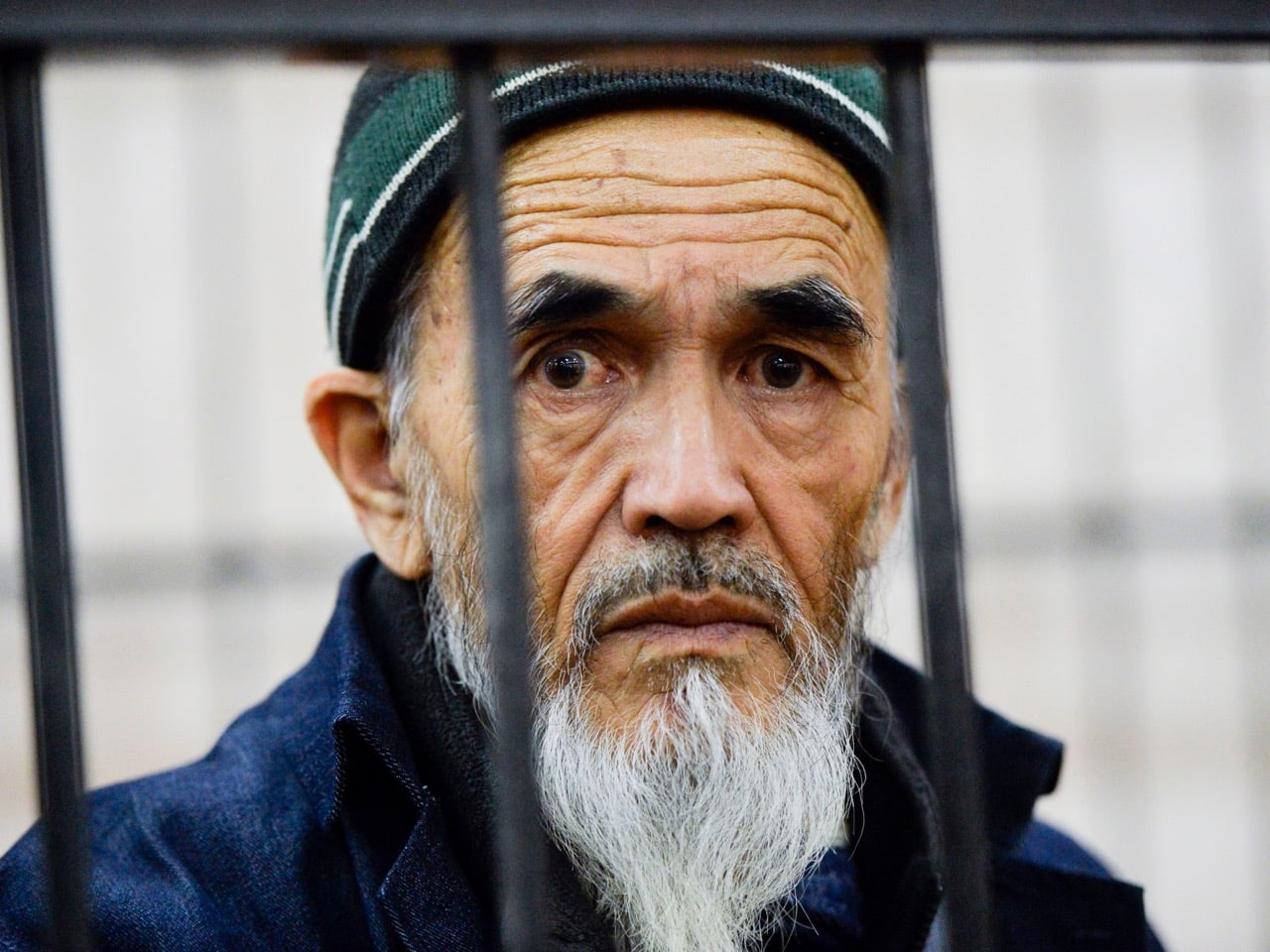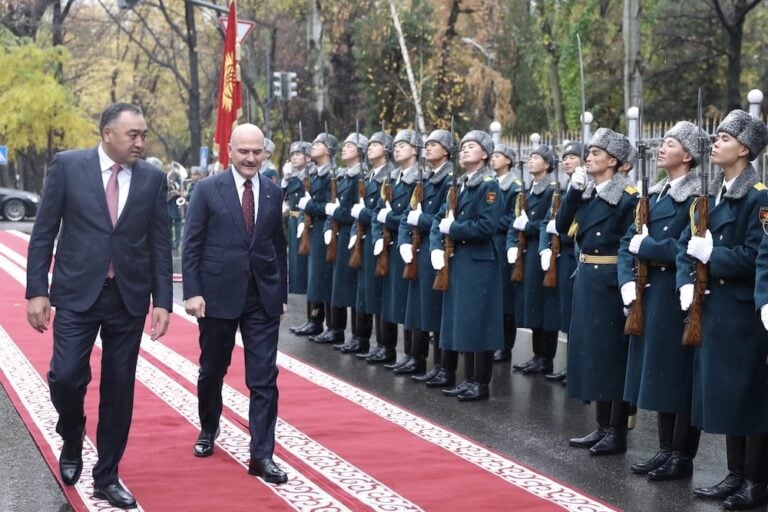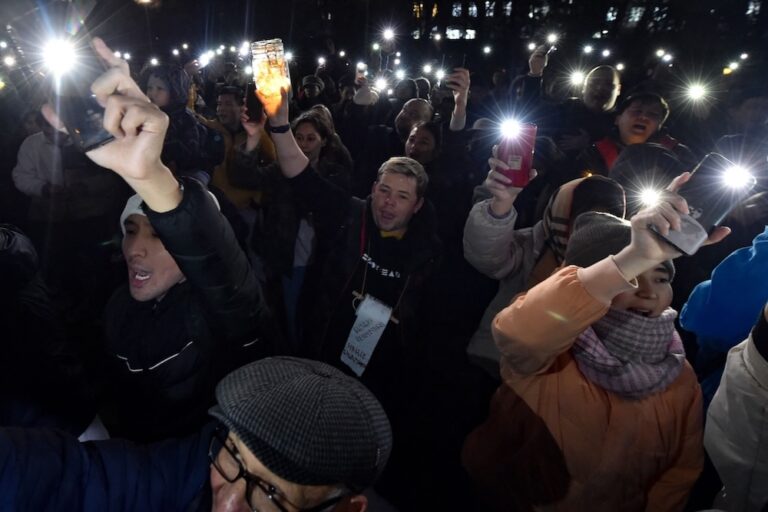A Kyrgyzstan court upheld a life sentence for human rights defender Azimjon Askarov, despite the UN Human Rights Committee's ruling that he should be released and his conviction quashed.
This statement was originally published on hrw.org on 24 January 2017.
A Kyrgyzstan court on January 24, 2017, upheld a life sentence for a human rights defender, Azimjon Askarov, despite the United Nations Human Rights Committee’s ruling that he should be released and his conviction quashed, Human Rights Watch said today. The court decision reinforces a severe miscarriage of justice in Kyrgyzstan.
The Chui Regional Court in Bishkek upheld Askarov’s life sentence, imposed following his unjust conviction in 2010 for “organizing mass disturbances” and “inciting interethnic hatred” leading to the killing of a policeman in Bazar-Korgon, southern Kyrgyzstan. Following the latest court ruling, Askarov, 66, declared he would protest by starting a hunger strike. Askarov’s lawyers said they would appeal to the Supreme Court.
“Azimjon Askarov should be released immediately,” said Hugh Williamson, Europe and Central Asia director at Human Rights Watch. “Kyrgyzstan cannot in one breath say it seeks to uphold human rights, and then in the next, dismiss such basic international legal norms as fair trial, arbitrary detention, and the prohibition on torture.”
The UN high commissioner for human rights, Zeid Ra’ad Al Hussein, said on January 24 that the court decision was “deeply troubling.”
On October 4, 2016, the court started to examine the case, which had been sent for retrial in July by the Supreme Court on the basis of the UN Human Rights Committee’s decision. The committee had ruled in March that Kyrgyzstan was obligated to release Askarov and quash his conviction concluding that he had been arbitrarily detained, tortured in custody, and denied a fair trial.
During the rehearing that ended on January 24, Minura Mamadalieva, Askarov’s co-defendant at the initial 2010 trial, who was arrested together with her 6-year-old son and later released, stated that she had been forced in the original trial to testify against Askarov. Police officers had mistreated her and threatened to put her child behind bars if she would not comply, she told the court.
Nurbek Toktakhunov, Askarov’s defense lawyer, told the court that he had not been able to adequately defend his client as he had received multiple death threats and feared for his personal safety. He also said that Askarov had been covered with bruises when the lawyer visited him at the Bazar-Korgon police station in 2010. Human Rights Watch documented attacks on Askarov’s lawyer and courtroom violence at the initial trial in 2010, which was marred by procedural violations.
Askarov’s case is one of the first high-profile cases related to the June 2010 ethnic violence in southern Kyrgyzstan that was sent for retrial. Human Rights Watch documented widespread allegations of torture and ill-treatment in the context of the investigations and trials that followed this violence. The outcome of this trial is a clear indication that Kyrgyzstan has failed to serve justice regarding the violence in southern Kyrgyzstan in 2010.
At the rehearing Askarov himself described in detail how in 2010 he had been repeatedly tortured in the Bazar-Korgon police station. He said he had been hit repeatedly with a plastic bottle filled with water, and forced to clean the premises while police officers beat and humiliated him.
At a point when these acts of torture became unbearable for him, Askarov said he had urged police officers to kill him rather than continue. He said the answer was, “No, we will make you die slowly.” The panel of judges did not take any action in response to the torture allegations. In the hearing before the verdict, Askarov said: “My only guilt was that I am an Uzbek and defended human rights.”
When announcing the verdict, the panel of judges stated that they “doubt the veracity of Askarov’s words that he had been repeatedly tortured as three state psychiatrists concluded that Askarov is a liar.”
Al Hussein, the UN high commissioner for human rights, called on Kyrgyzstan to implement the UN ruling on Askarov. “Despite the repeated commitment of the Kyrgyz authorities to uphold international fair trial standards and to resolutely investigate torture allegations, this latest trial vividly displayed the deficiencies in the country’s judicial and law enforcement system,” Al Hussein said. “The court did not pursue allegations that Askarov had been tortured.”
Kyrgyzstan’s international partners in the European Union, the United States, Canada, and elsewhere should urgently press the government in Bishkek at the highest level to reverse its rejection of international legal norms and to release Askarov.
“Askarov is an old man in ill health, and we are deeply concerned he will suffer even more on a hunger strike,” Williamson said. “Kyrgyzstan should take this opportunity to do the right thing and release Askarov.”



